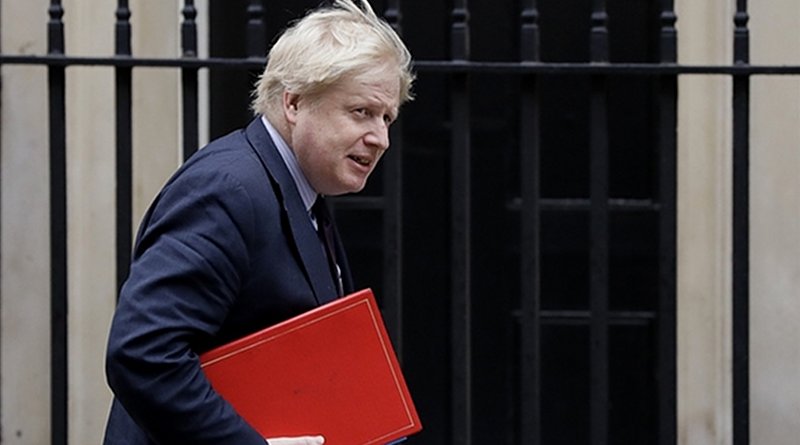UK’s ‘EU Question’ Is Settled, Johnson Says As New Trade Pact Agreed
By EurActiv
By Benjamin Fox
(EurActiv) — UK Prime Minister Boris Johnson boasted on Thursday (24 December) that the Brexit-question has been put to bed for a generation, as he announced the agreement of a new EU-UK trade treaty which will take effect from 1 January.
“This European question’s been going on for decades. I think this gives us the platform, the foundation for a really prosperous new relationship,” the prime minister told a press conference in Downing Street on Thursday.
A hard-fought compromise over fishing stocks — whereby the UK will take back 25% of the EU’s fishing quota, with changes phased in over five-and-a-half years — was the final act in securing a deal following several days of intense talks between Johnson and European Commission President Ursula von der Leyen.
The deal was concluded just one week before the end of the post-Brexit transition period.
UK government officials have defended the concession, which is a marked climbdown from previous UK demands, arguing that UK vessels will be catching two-thirds of the fish in its waters by 2026.
Both sides have already begun spinning the agreement as a success, claiming that they secured more concessions from their counterparts.
The two sides also agreed a clause on minimum standards on social, environmental and labour legislation, known as the ‘level playing field’, a key demand from the EU side.
The text of the treaty, estimated to be around 2,000 pages long, is expected to be published in the coming days, although it will now be subject to scrutiny, known as ‘legal scrubbing’, by lawyers for both sides.
The agreement, which guarantees tariff and quota-free trade between the EU and UK, is much thinner on substance than had been hoped for by both sides and falls short of the terms of the EU-Canada agreement.
However, it does allow Johnson to say that he has delivered on his promise to ‘get Brexit done’, which saw him secure a landslide victory in last December’s general election.
It should also, at least temporarily, mean that EU-UK trade and political relations will no longer dominate political debate on both sides of the Channel, four and a half years after voters in the UK narrowly voted to leave the bloc in a June 2016 referendum.
“My message to everybody on both sides of that argument in 2016 is I really think now it’s a long time behind us,” said Johnson.
Nigel Farage, the former leader of UKIP and the Brexit party and the main driving forces of the Brexit movement, commented that while the deal “is not perfect”, it means “there is no going back”.
EU chief negotiator, Michel Barnier, said today is “a day of relief, but tinged by some sadness”, while European leaders across the bloc also welcomed the treaty, which means businesses and travellers will avoid the disruption that would have been caused by reverting to World Trade Organisation terms from January.
French President Emmanuel Macron tweeted that “European unity and firmness have paid off”, while Dutch Prime Minister Mark Rutte described the agreement as “excellent news”.
However, the UK government’s own Office of Budgetary Responsbility has estimated that the pact will still result in the UK economy being 4% smaller than if the country had remained in the EU over the coming years.
UK lawmakers will return to Parliament on 30 December to debate and vote on the deal, expected to be passed by a large majority.
EU leaders are expected to agree to “provisional application” of the deal on 1 January, with the process of ratification by the European Parliament and national legislatures across the EU-27 to begin in January.
Keir Starmer, the leader of the opposition Labour party, said his party would support the trade pact, though he described it as a “thin agreement”. The Liberal Democrats and Scottish National Party have indicated that they will vote against the treaty.
A similarly guarded reaction came from Frances O’Grady, the general secretary of the Trades Union Congress, who remarked that “this deal is better than nothing, but not by much. It won’t protect jobs and puts hard-won workers’ rights on the line.”

